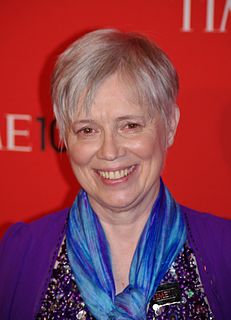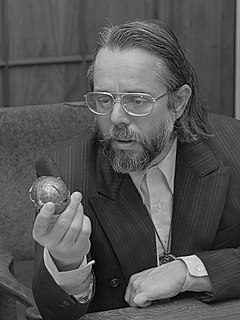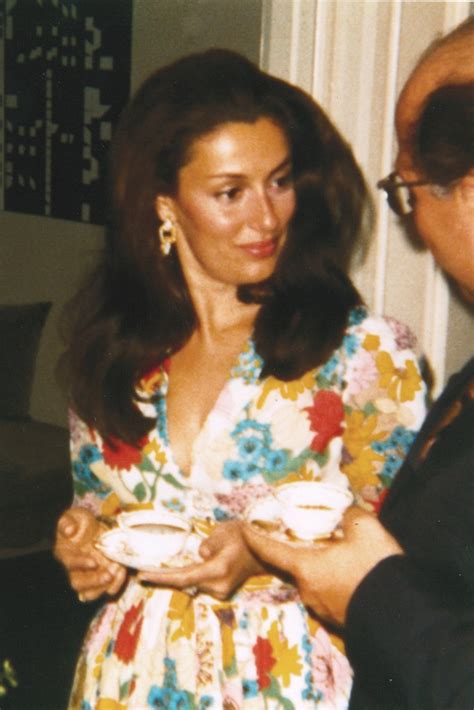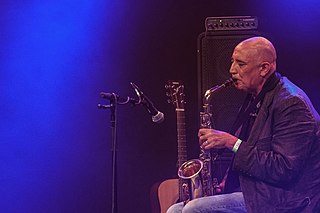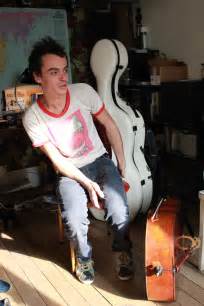A Quote by Terence McKenna
We can no longer have forbidden areas of the human mind, or cultural machinery. We have taken upon ourselves the acquisition of so much power that we now must understand what we are. We cannot travel much further with the definitions of man that we inherit from the Judeo-Christian tradition. We need to truly explore the problem of consciousness.
Related Quotes
We do not realize how deeply our starting assumptions affect the way we go about looking for and interpreting the data we collect. We should recognize that nonhuman organisms need not meet every new definition of human language, tool use, mind, or consciousness in order to have versions of their own that are worthy of serious study. We have set ourselves too much apart, grasping for definitions that will distinguish man from all other life on the planet. We must rejoin the great stream of life from whence we arose and strive to see within it the seeds of all we are and all we may become.
When we talk about the Judeo-Christian or the Judeo-Muslim tradition, it's important to remember that we are speaking of a Jewish component of civilization, but not in itself a civilization. What is happening now in Israel is that you have a coming together of Jews from the Christian world and Jews from the Muslim world with different cultures.
We live in a society that will send us to prison if we make use of time-honored sacred plants to explore our own consciousness. Yet surely the exploration and expansion of the miracle of our consciousness is the essence of what it is to be human? By demonstrating and persecuting whole areas of consciousness, we may be denying ourselves the next vital step in our own evolution.
We now live in a 'post-Christian' America . The Judeo-Christian ethic no longer guides our social institutions. Christian ideals and values no longer dominate social thought and action. The Bible has ceased to be a common base of moral authority for judging whether something is right or wrong, good or bad, acceptable or unacceptable.
I don't speak anything very well. The longer that you travel, you find out that you really don't even need to speak the language to get around and get things done, to live in those places. If you're somewhat resourceful and perceptive, you're pretty much going to know what's going on because human nature is human nature: they understand it, you understand it, and it works.
In the West nowadays, it's very common to talk about the Judeo- Christian tradition. It's a common term. The term is relatively modern but the reality is an old one. One could with equal justification talk about a Judeo-Islamic tradition or a Christian-Islamic tradition. These three religions are interlinked in many signification ways, which marks them off from the rest of the world. And I think there is a growing awareness of this among Christians and among Jews, and even to some extent to some Muslims. That's happening for obvious reasons.
Broadly speaking, it is my conclusion that a pretty good guide to most issues of natural law is to look at those areas where you find a consensus in the Judeo-Christian tradition. I think that is roughly, not unerringly, the outline of what I would call natural law.There must be some moral values underlying any civilization; that's my guide.
Our Christian destiny is, in fact, a great one: but we cannot achieve greatness unless we lose all interest in being great. For our own idea of greatness is illusory, and if we pay too much attention to it we will be lured out of the peace and stability of the being God gave us, and seek to live in a myth we have created for ourselves. And when we are truly ourselves we lose most of the futile self-consciousness that keeps us constantly comparing ourselves with others in order to see how big we are.
The Western music tradition is mostly addressed to a public that has a critical mind, and judges the quality of the writing, of the interpretation. And I think it is a great tradition! It pushes the musicians to always go further, and to never stop pushing the limits and explore what can be done with sounds. And great pieces of art were born from that tradition.
Different ages have certain approaches, which may be more effective for one age and no longer effective in another age. The world that we live in now has much greater density to it; it is much more all-pervasive. And when I say "world," I include the human mind in it. The human mind has grown even since the time of the Buddha, 2,500 years ago. The human mind is more noisy and more all-pervasive, and the egos are bigger.
I think the connection between poetry and theology, which is profound in Western tradition - there is a great deal of wonderful religious poetry - both poetry and theology push conventional definitions and explore perceptions that might be ignored or passed off as conventional, but when they are pressed yield much larger meanings, seem to be part of a much larger system of reality.

